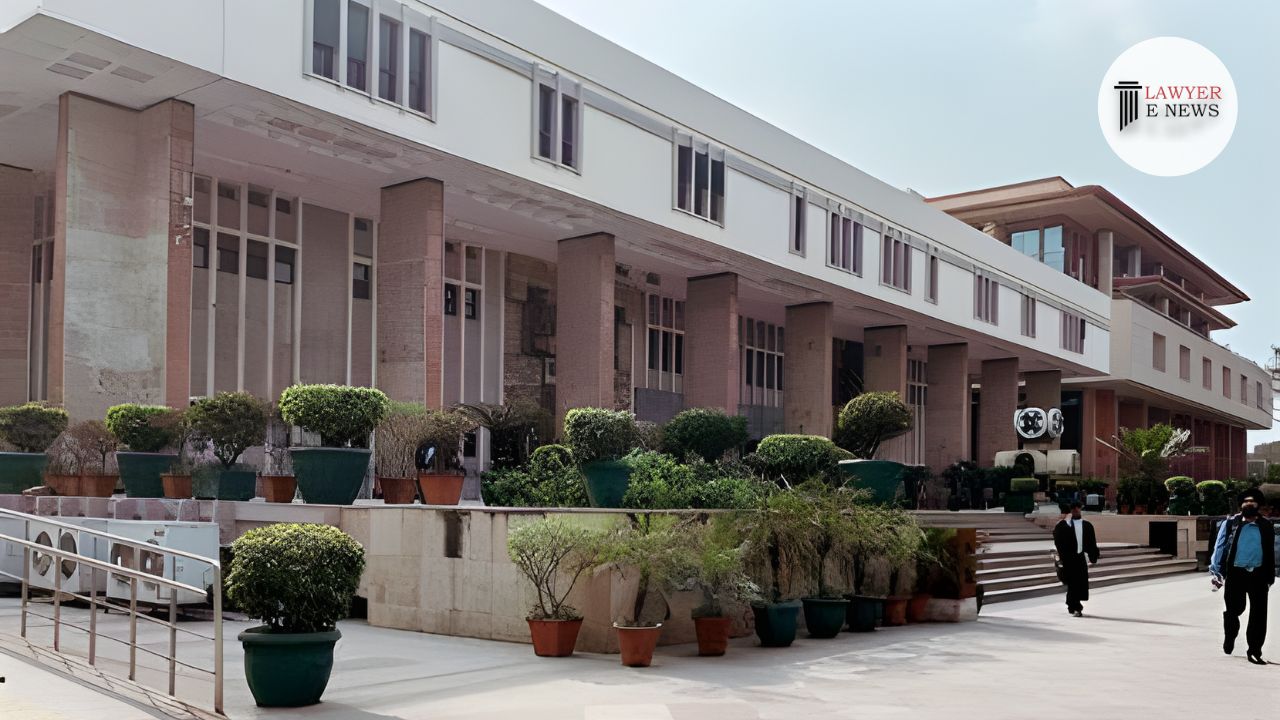-
by Admin
15 February 2026 5:01 PM



In a significant judgment, the Delhi High Court has denied the application for interim injunction by Jindal Industries Pvt. Ltd. Against Suncity Sheets Pvt. Ltd. And Rachna Jindal in a dispute involving the usage of the ‘JINDAL’ trademark. The Court, in its detailed analysis, emphasized the bona fide use of personal names under Section 35 of the Trade Marks Act and noted that the defendants’ use of the name did not infringe the plaintiff’s registered trademarks.
Legal Point : The Court focused on the analysis of Section 35 of the Trade Marks Act, which provides absolute protection to the bona fide use of one’s name, including its usage as a trademark.
Facts and Issues: Jindal Industries Pvt. Ltd. Contended that the defendants’ use of a similar mark infringed upon their registered trademarks and amounted to passing off. The defense argued that ‘JINDAL’ is a common surname and its use by Defendant 2, Rachna Nitin Jindal, is legitimate and protected under Section 35 of the Act.
Section 35 of the Trade Marks Act: The Court emphasized the overarching applicability of Section 35, which provides a statutory shield against claims of infringement when a person uses their bona fide name. It underscored that this protection extends to the use of the name as a trademark, highlighting its absolute nature over other provisions of the Act.
Bona Fide Use of Personal Name: Acknowledging that ‘JINDAL’ is indeed the name of Defendant 2, the Court observed that the impugned mark, prominently featuring ‘RNJ’ and ‘R N Jindal’, did not emphasize ‘JINDAL’ to an extent that it could be construed as infringing. The Court reasoned that the mark as a whole must be considered, not just the common surname ‘JINDAL’.
Comparison of Marks: The Court noted that the plaintiff’s mark (‘JINDAL’) and the defendant’s mark (featuring ‘RNJ’) were distinct, with the latter containing added features that clearly differentiated it. This distinctiveness mitigated any likelihood of confusion or deception between the marks.
Passing Off: In assessing the claim of passing off, the Court determined that there was no prima facie likelihood of confusion from the defendants’ use of their mark. The presence of ‘RNJ’ and other distinct features in the defendants’ mark made it a unique source identifier, unrelated to the plaintiff’s mark.
Registration of Common Names: The Court reflected on the implications of registering common names as trademarks, indicating that one who does so bears the risk of others also using that name bona fide. The decision emphasized that the law does not support monopolizing a common surname to the extent of excluding others from its bona fide use.
Parker Knoll Principle: The Court discussed the Parker Knoll principle from UK law but noted its limited applicability in the Indian context due to the explicit protection offered by Section 35 of the Indian Trade Marks Act.
Decision: The application for interim injunction by Jindal Industries Pvt. Ltd. Was dismissed, with the Court holding that the plaintiff failed to establish a prima facie case of trademark infringement or passing off against the defendants.
Date of Decision: 7th March 2024.
Jindal Industries Private Limited v. Suncity Sheets Private Limited and Anr.
